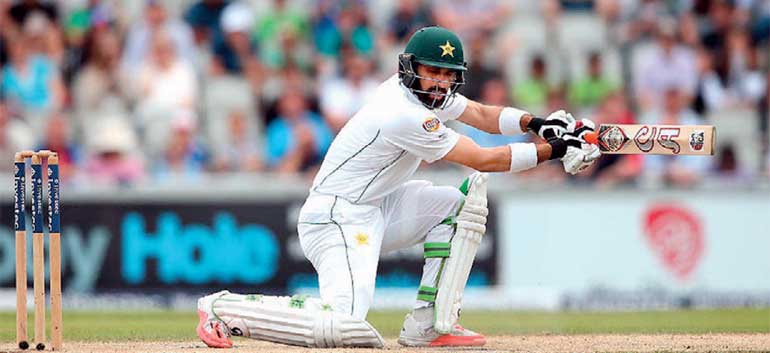Thursday Feb 19, 2026
Thursday Feb 19, 2026
Thursday, 29 September 2016 00:23 - - {{hitsCtrl.values.hits}}

Misbah-ul-Haq said day-night Tests should be played more often to give players exposure to the format’s particular demands – Getty Images
Misbah-ul-Haq, the Pakistan Test captain, has urged the cricketing world to embrace the concept of day-night Test “quickly”. Pakistan are set to play their first-ever pink-ball Test in Dubai against West Indies next month, from October 13 to 17. Pakistan have also agreed to a day-night Test against Australia in Brisbane in December.
The debate around the pink ball and day-night Tests has been on for more than five years, and the PCB was perhaps the first board to show a keenness to host a day-night Test; it proposed to play one against Sri Lanka in the UAE in 2013. The proposal, however, was declined, citing lack of practice with the pink ball. Misbah said the only way to iron out all the issues with format was to play it more often.
“Future belongs to night Tests and this should be played frequently,” Misbah said. “It’s a good thing that PCB increased the number of [first-class] day-night games in domestic cricket, and each team will be getting two games or so this season. If future is with day-night Tests, then we have to play it more often and we have to start embracing it quickly. Like we play one-day cricket with white ball, and this pattern had been adapted everywhere in domestic and even in club cricket...
“Meanwhile, there are problems, whether it’s a pink or orange ball, for batsmen and fielders so far. These issues can only sorted by playing more cricket under lights with pink balls. Since the game is played for the fans and for the audience, this night cricket is the future and it’s definitely good for cricket. The more frequently we play under lights, it will give more exposure and allow players to get used to it.”
The ICC permitted member boards to play day-night Tests from October 2012, but the onus remained on individual boards to decide on the feasibility of these matches in their bilateral agreements, and the precise brand, type and colour of ball to be used for the match. The PCB has been experimenting with day-night first-class cricket for the last six years, though it did not extend the experiment beyond a few games.
In 2010-11, the final of the domestic first-class Quaid-e-Azam Trophy was played with an orange ball in Karachi, and the 2011-12 final was played with a pink ball. This year’s final, between Sui Northern Gas Pipelines Limited, who were led by Misbah, and United Bank, captained by Younis Khan, received mixed reactions relating to the visibility of the pink ball under floodlights. The PCB has also scheduled 10 day-night matches to be played with the pink ball in the forthcoming first-class season, which begins next week.
Regarding Pakistan’s first day-night Test, Misbah said: “We will have six to seven days before the first Test, so we have to train maximum under lights with pink ball, and try to understand the conditions. We have to adjust to the timing of the sessions, understand how the ball will travel under lights, how much the ball will swing under lights, and how much the dew factor will be affecting it. If you see, the major chunk of the Test is in night, so it basically isn’t really a day-night Test. So we have to start working from scratch.”